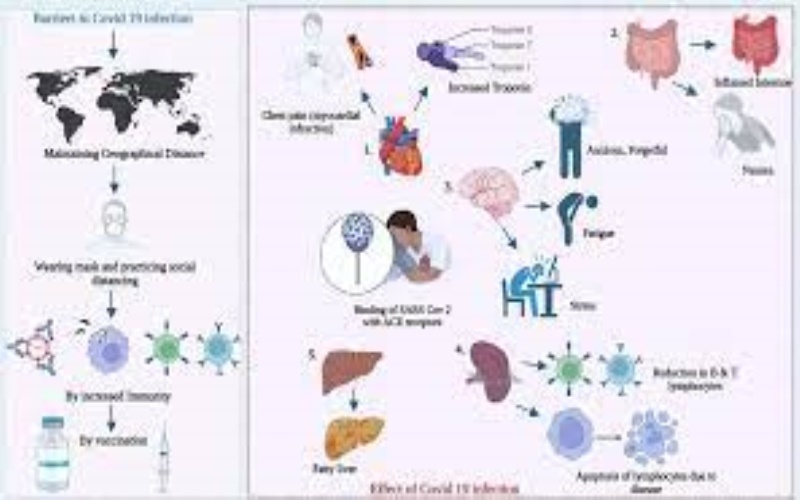The COVID-19 pandemic has brought about significant changes in our daily lives, reshaping routines and habits in profound ways. From social interactions to work dynamics, the impact of the virus has been felt across all aspects of society. In this article, we will explore four ways in which COVID-19 has affected normal life routines.
Remote Work Revolution:
One of the most notable changes brought about by COVID-19 is the widespread adoption of remote work. With lockdowns and social distancing measures in place, companies had to quickly adapt to remote work setups to ensure business continuity. This shift has blurred the lines between work and home life, with many individuals now juggling professional responsibilities alongside household chores and childcare. While remote work offers flexibility and eliminates commutes, it also presents challenges such as isolation, difficulty in maintaining work-life balance, and blurred boundaries between work and personal time.
Disrupted Social Interactions:
The pandemic has also disrupted traditional forms of social interaction, leading to feelings of loneliness and isolation for many individuals. Social distancing guidelines and restrictions on gatherings have forced people to find alternative ways to connect with friends and family, relying heavily on virtual platforms for communication and socializing. While technology has enabled us to stay connected in unprecedented ways, virtual interactions lack the spontaneity and intimacy of face-to-face encounters, contributing to feelings of disconnection and longing for normalcy.
Impact on Mental Health:
The prolonged stress and uncertainty associated with the pandemic have taken a toll on mental health worldwide. From anxiety and depression to feelings of helplessness and despair, the psychological impact of COVID-19 has been widespread. Factors such as social isolation, financial strain, and fear of illness have exacerbated existing mental health conditions and triggered new ones in many individuals. The stigma surrounding mental health has also been challenged, leading to increased awareness and destigmatization of seeking help and support.
Shift in Consumer Behavior:
COVID-19 has significantly altered consumer behavior, reshaping how people shop, dine, and entertain themselves. The widespread closure of non-essential businesses and restrictions on indoor activities have led to a surge in online shopping and delivery services. E-commerce giants have seen unprecedented growth, while brick-and-mortar retailers struggle to stay afloat. Similarly, the restaurant industry has been forced to adapt to takeout and delivery models, with dine-in experiences becoming a rarity. The entertainment sector has also undergone transformation, with streaming services replacing traditional cinemas and live events moving to virtual platforms.
Conclusion:
The COVID-19 pandemic has disrupted normal life routines in profound ways, reshaping the way we work, socialize, and consume. While the impact of the virus has been challenging and at times overwhelming, it has also sparked resilience, innovation, and adaptability in individuals and communities worldwide. As we navigate the uncertainties of the post-pandemic world, it is essential to reflect on the lessons learned and embrace the opportunities for growth and positive change. By supporting one another and prioritizing collective well-being, we can emerge from this crisis stronger and more united than ever before.

